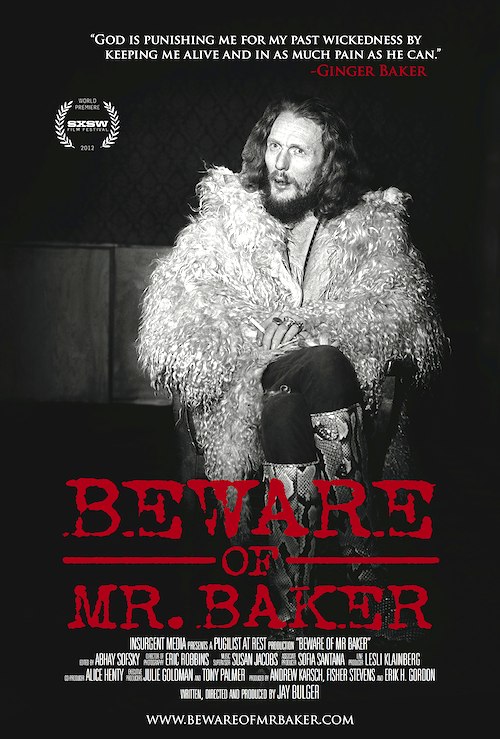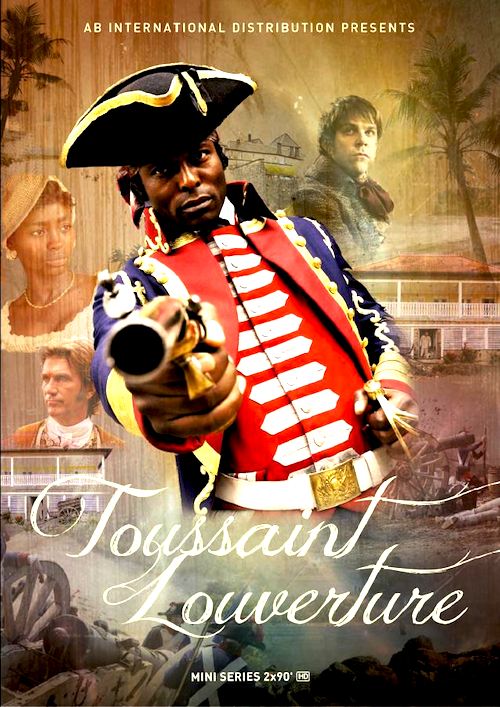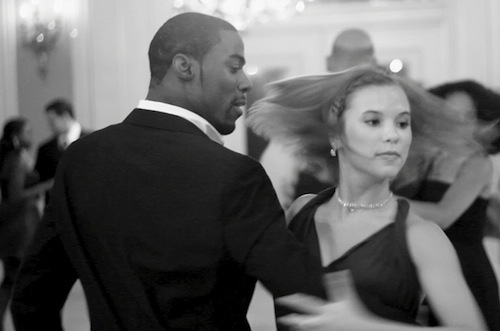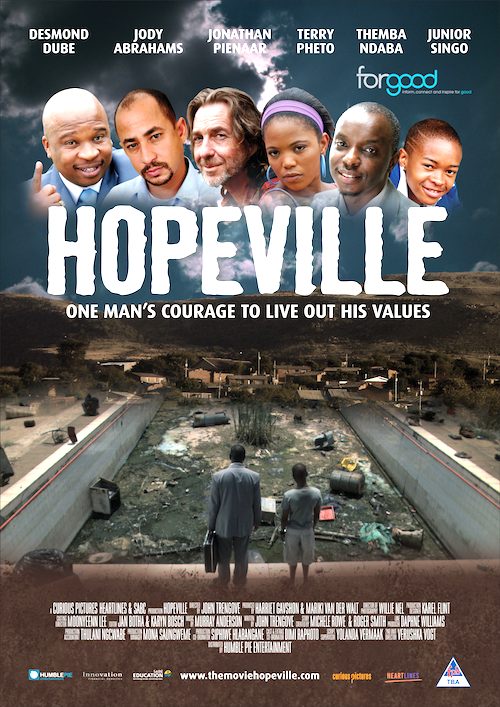By Joe Bendel. Notorious British Rock and Jazz drummer Ginger Baker is the sort of difficult individual people often call a “character” to be polite. There is plenty of “character” talk going on throughout a new warts-and-all documentary profile of the former Cream musician. However, some of his very former colleagues choose not to mince their words in Jay Bulger’s Beware of Mr. Baker, which opens this Wednesday at Film Forum.
Baker is the king of widely acclaimed but short-lived bands, like Cream, Blind Faith, Ginger Baker’s Airforce, Masters of Reality, and a dynamite legit jazz band Baker formed during his Colorado residency. He is a major reason why each outfit struck a chord with listeners and critics alike, and also the primary cause of their premature demise. Just ask Eric Clapton, Baker’s colleague from Cream and Blind Faith. Bulger does exactly that. While the timeless guitarist tries to be diplomatic, it is clear Baker the Wildman scared the holy heck out of him—and probably still does.
 It is mind-blowing to watch Baker’s repeating pattern of career comebacks cut short by self-sabotage. A case in point would be his African sojourn, partly documented in Tony Palmer’s rather engaging Ginger Baker in Africa. Arguably at the height of his fame, Baker went off the grid, traveling to a decidedly unstable Nigeria to explore traditional forms of music. Yet somehow he managed to fall in with Fela Kuti, who was not particularly inclined towards Europeans appropriators, only to alienate the musician-activist by joining the Nigerian ruling class’s Polo Club (that part Palmer misses out on).
It is mind-blowing to watch Baker’s repeating pattern of career comebacks cut short by self-sabotage. A case in point would be his African sojourn, partly documented in Tony Palmer’s rather engaging Ginger Baker in Africa. Arguably at the height of his fame, Baker went off the grid, traveling to a decidedly unstable Nigeria to explore traditional forms of music. Yet somehow he managed to fall in with Fela Kuti, who was not particularly inclined towards Europeans appropriators, only to alienate the musician-activist by joining the Nigerian ruling class’s Polo Club (that part Palmer misses out on).
In fact, polo has often been the downfall of Mr. Baker. Those ponies are expensive and they draw the attention of tax inspectors like a magnet. Still, the polo club Baker founded in Colorado and the jazz concerts his group gave after matches emerges in Bulger’s account as a brief high point in the drummer’s chaotic life.
While not Bulger’s uppermost concern, Beware makes a compelling case on behalf of Colorado’s local jazz talent. If you can satisfy Ginger Baker, than you can play with anyone. In fact, he had a great ear, recruiting excellent musicians like Fred Hess and trumpeter Ron Miles, who also appears as an interview subject. Of course, most of the film’s potential audience will be more interested in the likes of Clapton, Steve Winwood, Stones drummer Charlie Watts, Cream bassist Jack Bruce, Johnny Rotten, Lars Ulrich, Stewart Copeland, Femi Kuti, and various ex-wives. If there is anyone Bulger couldn’t get, they aren’t missed.
There is something perversely inspiring about Baker’s resiliency. He keeps doing it his way, regardless of the consequences. Beware captures all the madness of the Ginger Baker experience, but Bulger tries his best not to let it overshadow the music. Naturally, Baker is often his own worst enemy in this respect. Yet, somehow viewers will want to listen to Baker’s classic tracks after witnessing his spectacularly anti-social behavior. That is a neat trick Bulger deserves mucho credit for pulling off. A thoroughly entertaining documentary chocked full of unforgettable headshaking, face-palming moments, Beware of Mr. Baker is recommended for fans of rock, jazz, world music, and all around excess when it opens this Wednesday (11/28) at New York’s Film Forum.
LFM GRADE: A
Posted on November 27th, 2012 at 11:21am.







